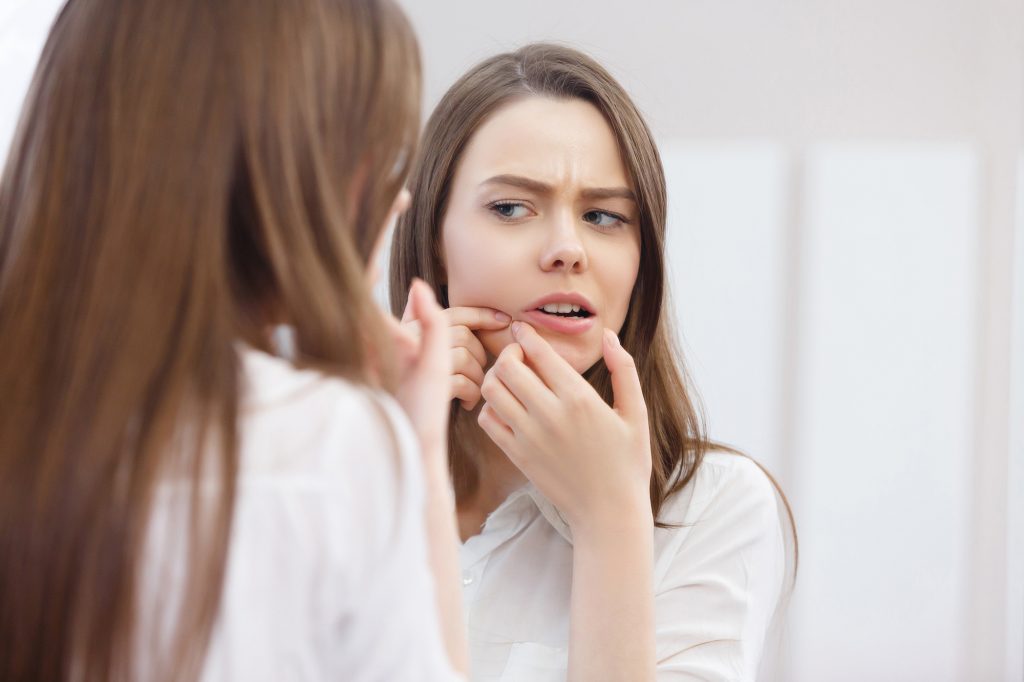Puberty causes major physiological changes: body hair, menstruation, sexual curiosity and even facial acne. For most, the worst part is having to deal with pimples as it is usually located on a very obvious spot. Acne is formed due to blockage of pores containing oil glands on the face. The blockage containing skin cells, sebum, and hair then develops into a plug which will be secondarily infected with bacteria, resulting in inflammation and pimple. Acne removal treatment differs for the various types of acne, with cystic acne being the most concerning type requiring aggressive treatment including hormone alteration and dietary changes.
How is Cystic Acne different from other types of Acne?
Acnes are classified into inflammatory and non- inflammatory.
- Non- inflammatory: Blackheads and whiteheads.
- Inflammatory: Papules, pustules, nodules, cysts
Cystic acne involves the deeper layers of the skin, specifically deep inside hair follicles, developing into pus-filled lumps in the skin which are very large, soft, painful, red or white in colour. If the pus is removed manually by squeezing or poking it, it will turn into permanent scars in the form of pits or depressions in various sizes and depths.
Causes of Acne
- Hormones When individuals reached puberty, androgens capable of causing physiological changes including enlarging the sebaceous glands which in turn will make more sebum. Hormonal changes can also be due to pregnancy and the use of oral contraceptives as well as during menstrual cycles. Polycystic Ovarian Syndrome patients are also prone to cystic acne due to the overproduction of androgen hormones in a female.
- Diet Studies indicate that dairy products and carbohydrate-rich foods such as bread, bagels and chips may worsen acne as it’s favourable for the growth of acne-causing infections. Chocolate has also long been suspected of making acne worse.
- Certain drugs and chemicals For instance corticosteroids, lithium, phenytoin, and isoniazid may worsen or cause eruptions that are similar to acne.
- Stress Emotional and physical stress can aggravate acne further.
How to treat cystic acne?
Managing cystic acne requires more than over-the-counter medications. A dermatologist or an aesthetician will need to recommend one or more of the following:
- Oral antibiotics with or without topical ones help eliminate bacteria to reduce inflammation.
- Hormone content in birth-control pills is beneficial in overcoming androgen excess in women. But this is a second-line treatment after antibiotic. Other options that help with hormone regulation is spironolactone.
- Isotretinoin is utilized in moderate to severe form of acne by changing abnormal follicular keratinization, reduce sebum production by 70%, decreases bacterial colonization as well as anti-inflammation. For most people, this clears the skin completely and permanently. If it recurs, you can repeat the treatment. However, pregnant women are advised to avoid this medication as it is teratogenic.
- Other alternatives to be considered are comedone extraction, chemical peels and microdermabrasion, steroid injection for acne cysts, and laser resurfacing for acne scarring.




